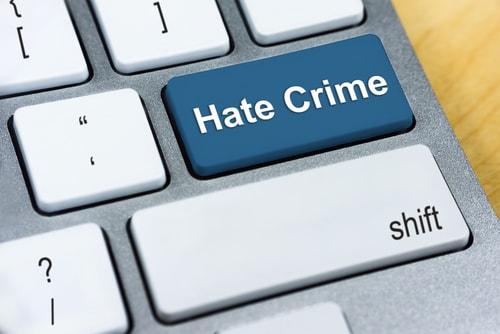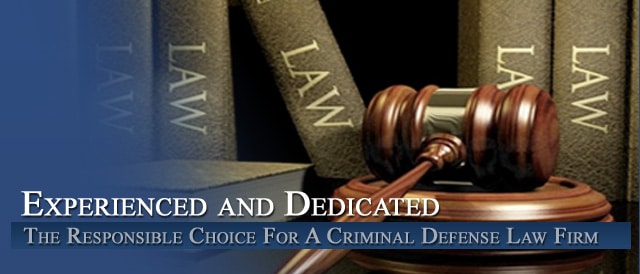Miami Criminal Defense Attorney Defending People Accused of Hate Crimes
Discrimination has become a major issue across the country in recent years. Issues of gender equality, race relations, and immigration status have become hostile – perhaps more than ever before. In this heated political climate, some law enforcement agencies and prosecutors have become overzealous in their pursuit of hate crimes. It is important to hold investigators and prosecutors accountable for fairly investigating and charging all crimes. When a crime has been charged too severely, repetitively, or based upon an intent that the defendant did not possess, it is important to fight the unfair charges. This can both prevent a wrongful conviction and deter law enforcement and prosecutors from bringing improper charges in the future.
If you or a loved one are facing hate crime charges, contact the experienced Miami criminal defense attorney at Stroleny Law: Criminal Defense Attorney He is a lawyer who is highly skilled in defending many types of crimes and can help protect defendants’ legal rights throughout the criminal process. Call (305) 615-1285 today to schedule a free phone consultation.
What is a Hate Crime?
Section 775.085 of the Florida Statutes refers to hate crimes as a felony or misdemeanor which “evidences prejudice based on the race, color, ancestry, ethnicity, religion, sexual orientation, national origin, homeless status, or advanced age of the victim.” The section reclassifies these prejudiced offenses one class higher than the original felony or misdemeanor. For example, a second-degree misdemeanor becomes a first-degree misdemeanor, a first-degree misdemeanor becomes a third-degree felony, and so on. The higher classification allows prosecutors to seek harsher penalties, such as longer period of incarceration, more expensive fines, extended periods of probation or community service, and other similar penalties.
The section also requires that the defendant “perceived, knew, or had reasonable grounds to know or perceive that the victim was within” the protected class. The prosecutor must prove this, and the record of the proceedings must reflect the fact as well. If the record does not reflect this element, a conviction could be overturned on appeal.
Federal Hate Crimes

Federal law also creates penalties for hate crimes. 18 U.S.C.§249 defines hate crimes as willfully causing bodily injury (or attempting to cause bodily injury) to a person based upon actual or perceived race, color, religion, national origin, gender, sexual orientation, gender identity, or disability of any person. Notice that these protected categories are slightly different than the categories protected under Florida law.
There must also be federal jurisdiction in order to charge a hate crime in federal court. To meet this requirement, Section 249 lists specific situations in which federal jurisdiction exists over a hate crime. These include circumstances in which the crime caused, or was the result of, the travel of the defendant or the victim across a State line or national border. Federal jurisdiction also exists if the defendant used a channel, facility, or instrumentality of interstate or foreign commerce, or if the defendant employed a firearm, dangerous weapon, explosive or incendiary device, or other weapon that has traveled in interstate or foreign commerce. There is also federal jurisdiction over hate crimes that interfere with commercial or other economic activity in which the victim is engaged at the time of the conduct; or otherwise affects interstate or foreign commerce. Finally, the Section also grants federal jurisdiction over hate crimes committed in maritime or territorial jurisdictions of the United States.
While federal jurisdiction and classes of protected victims may seem complicated, it is essential to understand how federal law can be implicated by certain behaviors. Federal crimes often carry more severe sentences than their counterparts in state law. Furthermore, federal criminal convictions can be more likely to affect federal rights, such as international travel or serving in the armed forces. This is why it is so important for defendants charged in federal court to be represented by an experienced attorney who thoroughly understands federal law.
The Arguments For and Against Hate Crime Legislation

There are important goals to be served by enacting hate crime legislation, but there are also risks that come with it. It is vital to deter crimes that are motivated by such factors as race, color, national origin, gender, and other similar classifications. Unfortunately, punishing this behavior also punishes a person for his or her beliefs. Though the beliefs might be disagreeable, it is difficult for many critics of hate crime legislation to accept that the government should be allowed to punish a person based upon his or her beliefs. Supporters allege that hate crime legislation only punishes a person’s behavior (though the same behavior is punished more severely if it is based upon a person’s prejudiced beliefs). And in many cases, a jury is required to determine the fundamental fact of whether the defendant was, in fact, prejudiced at all. This leaves the crucial issue to the individual whims of a particular jury.
As you can see, hate crime legislation brings up many complicated issues. Freedom of speech, freedom of thought, and freedom of expression are very different legal issues with very different considerations. While it is not possible to resolve these complex issues on a single hate crime case, it is possible for the defendant to be adequately represented by an experienced criminal defense attorney in Miami who knows hate crime law. This can help protect the defendant’s other important constitutional rights – due process, the right to counsel, the right against self-incrimination – at every phase of the criminal proceedings.
Call Us Today to Talk to a Miami Hate Crime Defense Attorney
Hate crime convictions can quickly lead to lengthy prison sentences. A criminal conviction can also limit a defendant’s opportunities in employment, housing, financing, and other critical areas of life. Don’t try to handle serious charges on your own – the experienced criminal defense attorney of Stroleny Law: Criminal Defense Attorney can help protect your constitutional rights at all stages of criminal proceedings. He is an experienced attorney who represent defendants in state and federal courts across the state of Florida. Call (305) 615-1285 for a free phone consultation as soon as possible. You can also contact us through our online contact form.
Stroleny Law: Criminal Defense Attorney handles a variety of criminal law cases, so call now if you have any questions.
View more contact information here: Miami Criminal Defense Attorney.



